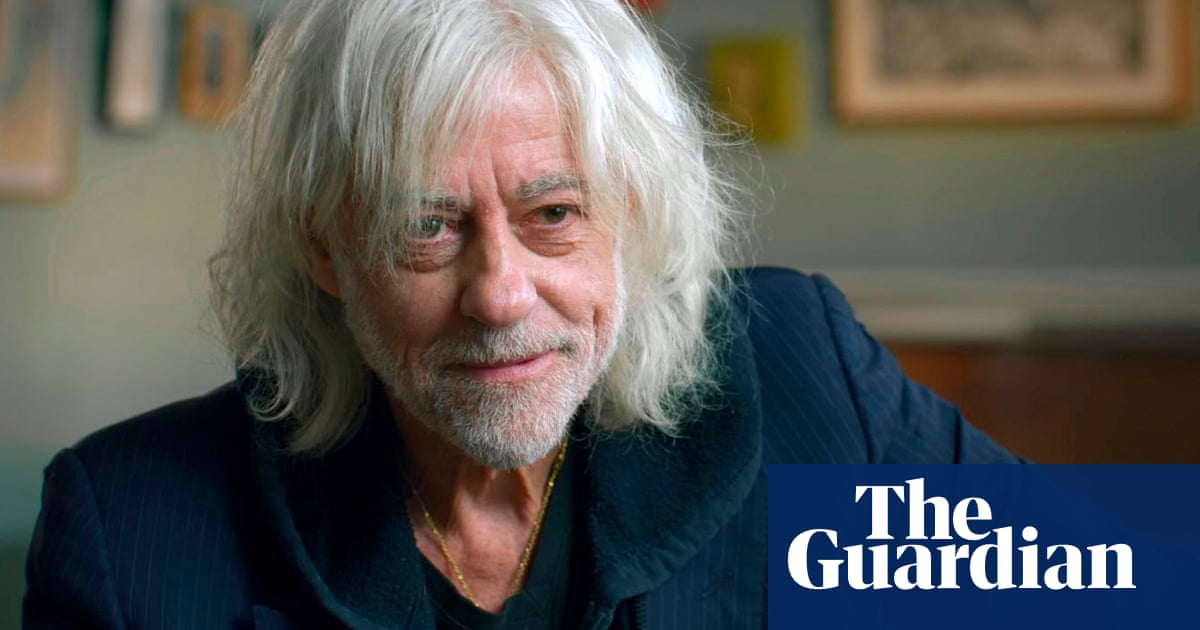On paper it has everything. A redemption-arc narrative about overcoming homelessness, adversity and illness. Two late-middle age lead characters that would appeal to the key silver-pound cinema-going demographic, as well as providing plum roles for top-notch British actors. A backdrop of glorious south coast scenery, as experienced through that most modish of contemporary activities: hiking.
No wonder film-makers were champing at the bit to make a movie out of The Salt Path, the memoir by Raynor Winn published in 2018 – and so one duly emerged, starring Gillian Anderson as Winn and Jason Isaacs as her husband Moth, who was diagnosed with the incurable condition corticobasal degeneration (CBD). It was released in the UK in May, and was a verifiable hit, taking home £7.6m from the UK box office and becoming the third most successful British film of 2025 so far, behind Bridget Jones: Mad About the Boy and We Live in Time.
But all this looks imperilled by the sensational report in the Observer on Sunday that alleged that Winn took tens of thousands from a former employer, and lied about the circumstances under which the couple’s house was repossessed in the memoir. The report also alleged that Winn – whose real name is allegedly Sally Walker – and her husband had owned a house in France since 2007. A professor of clinical neurosciences also questioned the validity of Moth Winn’s CBD diagnosis. Winn said the Observer’s report was “highly misleading” and that she was “taking legal advice and won’t be making any further comment at this time”.
A spokesperson for the film’s producers, Shadowplay and Number 9, said: “The film is a faithful adaptation of the book that we optioned … There were no known claims against the book at the time of optioning it or producing and distributing the film and we undertook all necessary due diligence before acquiring the book.”
It is not an unprecedented situation for film-makers to have doubt cast on the authenticity of books that they have adapted. The Heart Is Deceitful Above All Things was released in 2001, and made into a film in 2004, before its author, the reclusive JT Leroy, was revealed to in fact be Laura Albert. A Mark Romanek-directed film version of James Frey’s A Million Little Pieces was scrapped in 2006 after Frey was revealed to have included fictional elements in his “memoir”; however, a film did emerge in 2019, directed by Sam Taylor-Johnson, that embraced the book’s questionable nature.
Unhappily for The Salt Path movie, the controversy has arisen at a delicate, financially vulnerable point. The film had its world premiere at the Toronto film festival and has largely completed its theatrical run in the UK, as well as playing in cinemas in the Netherlands, Australia and South Africa. Unlike a studio film, independent productions have to sell themselves piece by piece across the world; crucially the film has not yet secured a North American cinema release. Less than a month ago, its sales agents appeared confident of striking a deal on the back of its healthy British box office returns; now it could well be seen as damaged goods.

Notwithstanding its successful theatrical run, the producers will have been hoping for a “long tail” of cinema screenings, which now looks questionable; a cinema manager I spoke to said while they’d honour previously made bookings in such a situation, the film is attracting considerable abuse on social media and may now be “tainted”. Even more concerning is the reality that a considerable proportion of a film’s revenue will come from home entertainment formats via streaming platforms, digital rental and download, DVD and TV and the like. The Salt Path has yet to be released on any of these formats and common sense dictates that the take-up will inevitably be diminished, meaning another significant financial hit. A projected awards campaign, for which Anderson and Isaacs would have been shoo-ins for Bafta nominations, if not Oscars, may well have gone up in smoke also.
Depending on the details of the rights agreement, the producers may be able to make a compensation claim at some future point against Winn, depending on how the controversy is resolved.
Perhaps more intangible is the reputational cost to the film-makers. Shadowplay Features is an outfit based around heavyweight producer Lloyd Levin, who in the past has produced United 93, Watchmen, Da 5 Bloods and The Mauritanian; Number 9 is the company of high profile British producers Stephen Woolley and Elizabeth Karlsen, whose previous credits include Carol, Living, Colette and On Chesil Beach. Embarrassing as this furore may be, both sets of producers have built up illustrious reputations in the industry and once the dust has settled it is hard to see either sustaining any significant damage.

 7 hours ago
2
7 hours ago
2










 English (US)
English (US)